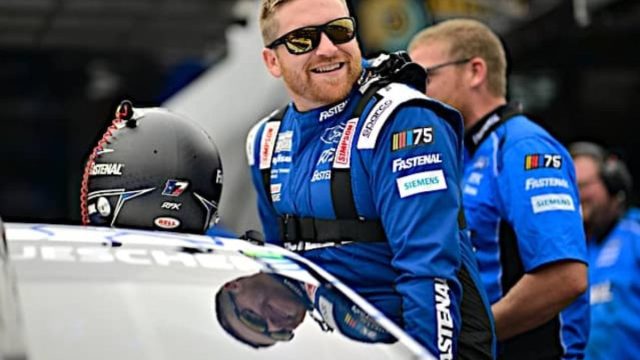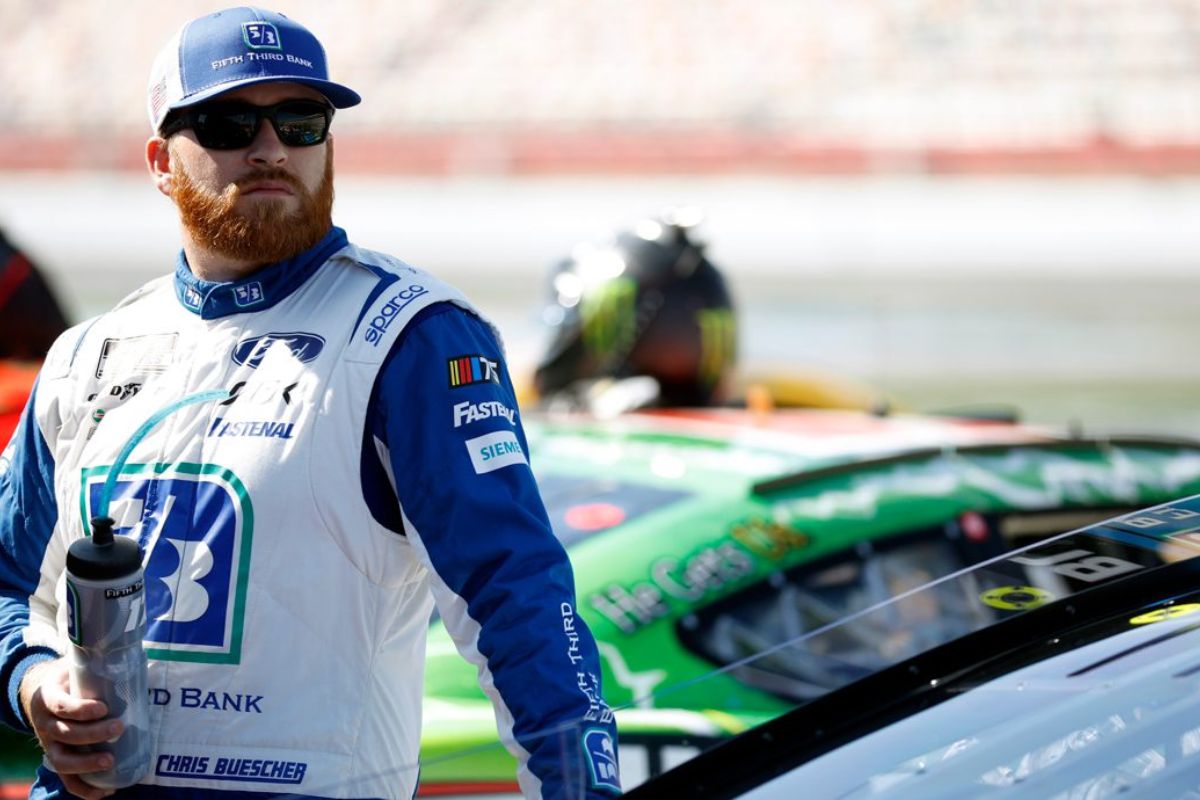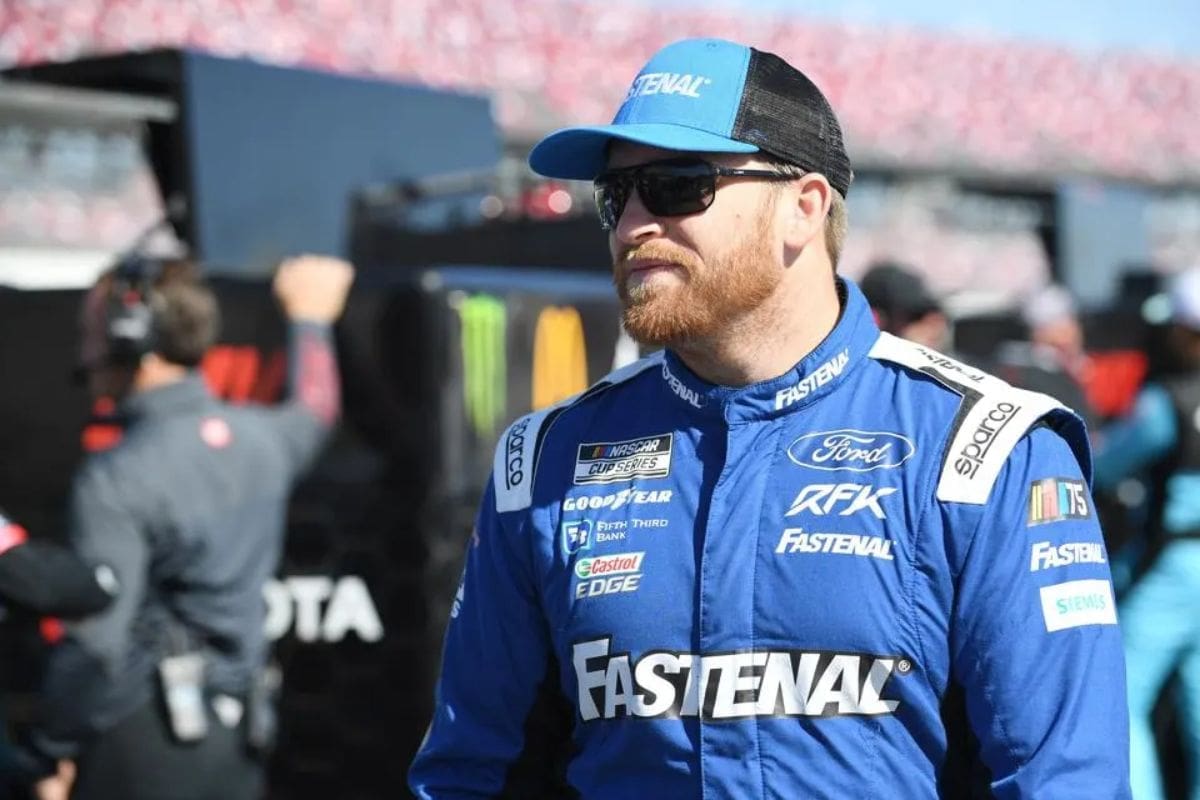NASCARs Weather Failures Frustrate Chris Buescher: Chris Buescher‘s recent frustrations with unreliable weather forecasts have spotlighted a critical issue within NASCAR: the growing doubt towards technological tools that are meant to improve race day decision-making. As unpredictable weather patterns increasingly disrupt race logistics, the accuracy of these forecasts becomes paramount, raising questions about their reliability and the implications for driver safety. Buescher’s frank commentary on social media reflects his personal discontent and resonates with a broader disquiet among his peers. This situation begs the question—what steps can NASCAR take to restore trust in weather reporting, and how might this affect future races?
Key Highlights
- Chris Buescher expressed frustration with weather app inaccuracies that impacted race day preparations and strategies in NASCAR.
- Erroneous weather forecasts create confusion among teams, affecting tire selection and fuel strategies during critical races.
- Buescher’s doubt about weather apps highlights the need for more reliable real-time weather information in NASCAR.
- Rain delays, such as those during the FireKeepers Casino 400, complicate race logistics and safety management.
- Improved communication from NASCAR regarding weather management is essential to enhance driver and fan experiences.
Weather’s Impact on NASCAR and Michigan International Speedway
Weather undeniably plays a vital role in shaping the dynamics of NASCAR racing, particularly at venues like Michigan International Speedway. The unpredictable nature of the sport is markedly worsened by atmospheric conditions, as evidenced by the frequent delays and postponements that arise from adverse weather. The recent two-hour delay at Michigan serves as a case in point, illustrating how rain can disrupt the teams’ strategies and the complete experience for fans.
For teams, accurate weather forecasting is important ; it dictates tire selection, fuel strategy, and even pit stop timing. Racers depend on precise data to navigate the intricacies of wet tracks, which are notorious for increasing the risk of accidents. The complexities of weather conditions compel teams to remain vigilant, often leading to drivers checking forecasts multiple times a day.
The volatility of weather not only shapes the competitive landscape but also influences the spectator experience at Michigan International Speedway. As NASCAR continues to adapt to these challenges, the importance of integrating advanced meteorological insights into race-day strategies becomes increasingly evident.
Chris Buescher’s Frustration with Weather Apps
Chris Buescher‘s reliance on a weather app exemplifies the growing frustration among drivers regarding the accuracy of meteorological forecasts in NASCAR. Buescher’s experience at the Michigan International Speedway serves as a case study of how technology, which is intended to inform and aid decision-making, can sometimes mislead.
On the day of the race, Buescher confidently consulted his weather app, which indicated a clear path for racing. He expressed his optimism on X, stating, “If you ask me about getting today’s race in, I’m going to tell you I’ve got a free weather app on my phone that says we are good to go and I’m trusting that #nascar.”
If you ask me about getting today’s race in I’m going to tell you I’ve got a free weather app on my phone that says we are good to go and I’m trusting that #nascar
— Chris Buescher (@Chris_Buescher) August 18, 2024
However, the reality proved otherwise when rain began to fall just as the race was set to commence, leading to a two-hour delay. This discord between expectation and reality highlights a crucial issue: the reliability of weather apps in dynamic environments like NASCAR.
Buescher’s experience not only highlights the inherent unpredictability of weather but also raises questions about the drivers’ trust in technological tools designed to provide real-time information. As racing schedules often hinge on precise conditions, the consequences of erroneous forecasts can be considerable, impacting not only the race day experience but also the broader trust drivers place in these digital resources.
Chris Buescher’s Reaction and Fan Advice
Following the disappointment of race day, Chris Buescher took to social media to express his frustration with the weather app that let him down. His frank remarks revealed a deeper disillusionment with technology that is supposed to provide reliable information for critical decision-making in high-stakes environments like NASCAR.
Buescher’s tweet, “Update I’m deleting the app,” expressed his sense of betrayal—a sentiment echoed by many in the racing community who depend on accurate weather forecasts to prepare for unpredictable race conditions.
In response to Buescher’s predicament, a fan suggested that he utilize multiple weather apps to reduce the risk of erroneous forecasts. However, Buescher’s witty retort, “It sounds like I’ll be disappointed twice as much,” highlighted his growing doubt towards these digital tools.
This exchange not only emphasizes the inherent frustration of race car drivers when technology fails them but also reflects a broader conversation about the reliability of weather forecasting in sports.
Fans and followers of Buescher, while well-meaning, may not fully grasp the unique challenges faced by professional drivers. Their performance hinges on precise information, and repeated failures can undermine confidence, not just in apps but in the systems that govern race day.
Buescher’s experience serves as a cautionary tale about the limitations of technology in high-stress settings, prompting a reevaluation of how drivers and teams engage with forecasting tools moving forward.
Rain’s Impact on the FireKeepers Casino 400
The impact of rain on the FireKeepers Casino 400 was substantial, leading to the race’s rescheduling to 11 a.m. ET on Monday. The absence of lighting at Michigan International Speedway exacerbated the situation, as heavy downpours raised serious concerns about driver safety and the comprehensive race experience for fans.
Even if the rain ceased, the logistics of drying the track presented an extra challenge. The two-mile circuit required approximately two hours of drying time, an endeavor that further encroached upon the daylight.
These factors created a precarious scenario; officials had to navigate the delicate balance of ensuring safety while attempting to maintain an uninterrupted racing schedule. Despite these obstacles, the event crew displayed remarkable efficiency, executing a rapid response to the adverse weather conditions.
Their efforts ended in a successful re-scheduling and the eventual commencement of the race, which highlighted the resilience of NASCAR’s operational framework. However, the experience raised critical questions about the reliability of weather forecasting and the infrastructure in place to manage such unpredictable elements.
As NASCAR continues to navigate the complexities of weather-related disruptions, the FireKeepers Casino 400 serves as a reminder of the need for improved strategies in mitigating the impact of rain on race day.
Race Developments and Playoff Picture
Tension built as the FireKeepers Casino 400 progressed, showcasing the significant risks of the dwindling regular season. Kyle Larson‘s blistering pace, exceeding 200 mph on the straights, put him in a prime position early in the race. However, the battle for dominance intensified as Denny Hamlin and Bubba Wallace jockeyed for position, ending in Wallace’s audacious move on Lap 36 that thrust him into the lead. This action not only highlighted Wallace’s aggressive strategy but also emphasized the unpredictable nature of racing dynamics.
The caution flag waved shortly after Hamlin lost control, creating a crucial moment in the race. Wallace’s decision to pit for fresh tires and fuel illustrated a long-term strategy over immediate stage points, a call that could pay dividends as the race unfolded. Ryan Blaney capitalized on this shift, claiming the initial stage victory, thereby solidifying his standing in the playoff picture.
With only three races remaining in the regular season, the stakes could not be higher. Twelve drivers have secured their playoff berths, leaving just four coveted spots open for those still vying for a chance to compete for the championship.
As the teams prepare for their next challenge at Daytona, each lap becomes vital, amplifying the tension on drivers to perform. The FireKeepers Casino 400 not only impacted immediate standings but also set the stage for a dramatic finale to the regular season, where every decision will reverberate through the playoff landscape.
News in Brief: NASCARs Weather Failures Frustrate Chris Buescher
The challenges faced by NASCAR drivers, presented by Chris Buescher’s frustrations with unreliable weather apps, emphasize a critical need for improved forecasting accuracy. Inaccurate weather predictions not only disrupt race strategies but also pose safety concerns. This situation highlights a broader issue within the sport regarding the reliability of technological tools used in race logistics. Ultimately, addressing these shortcomings in weather reporting is vital to restore trust and guarantee the integrity of race day operations.
ALSO READ: Chris Buescher’s Mantra to Handling Playoff Pressure Ahead of the Regular-Season Finale



